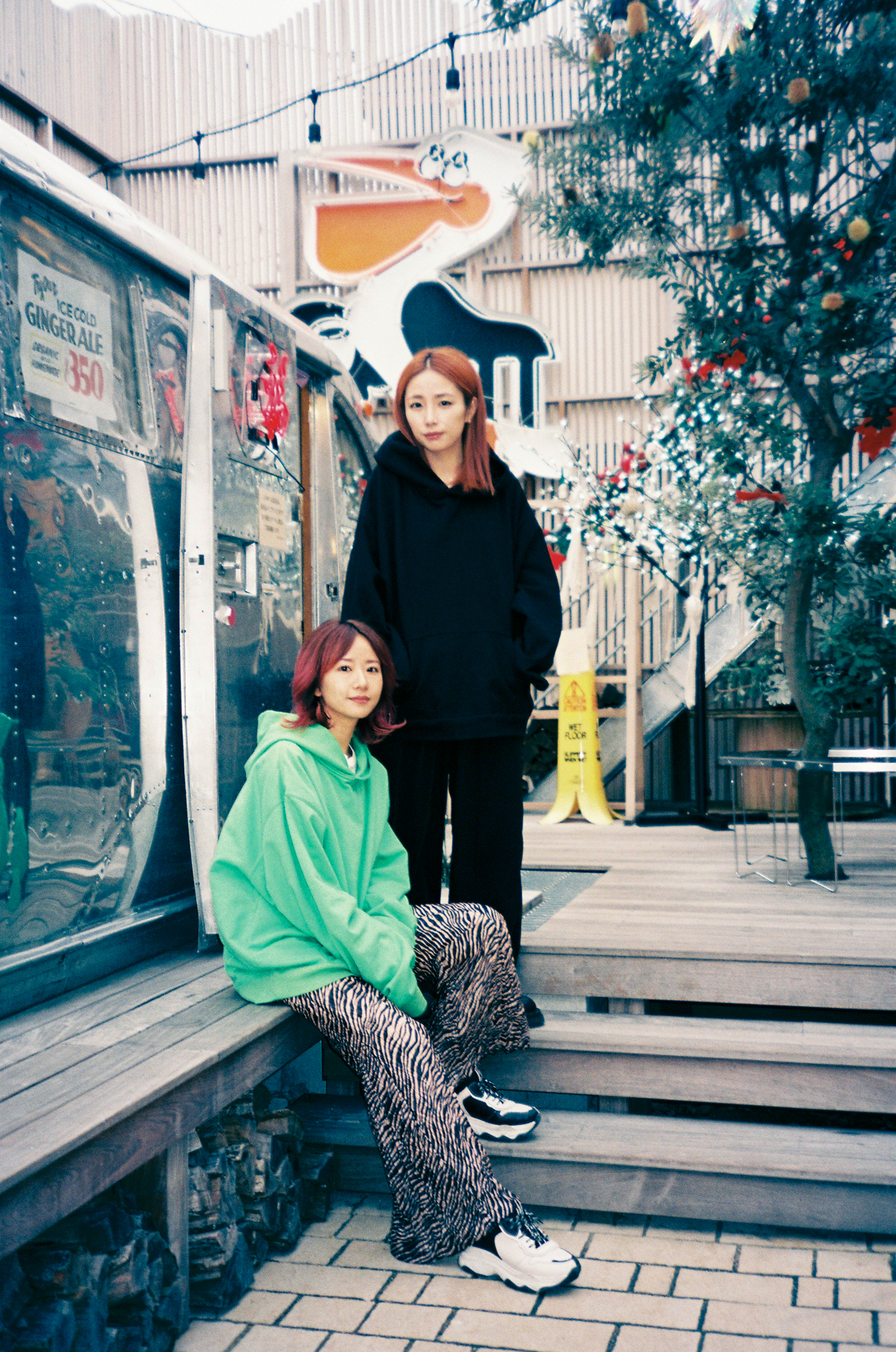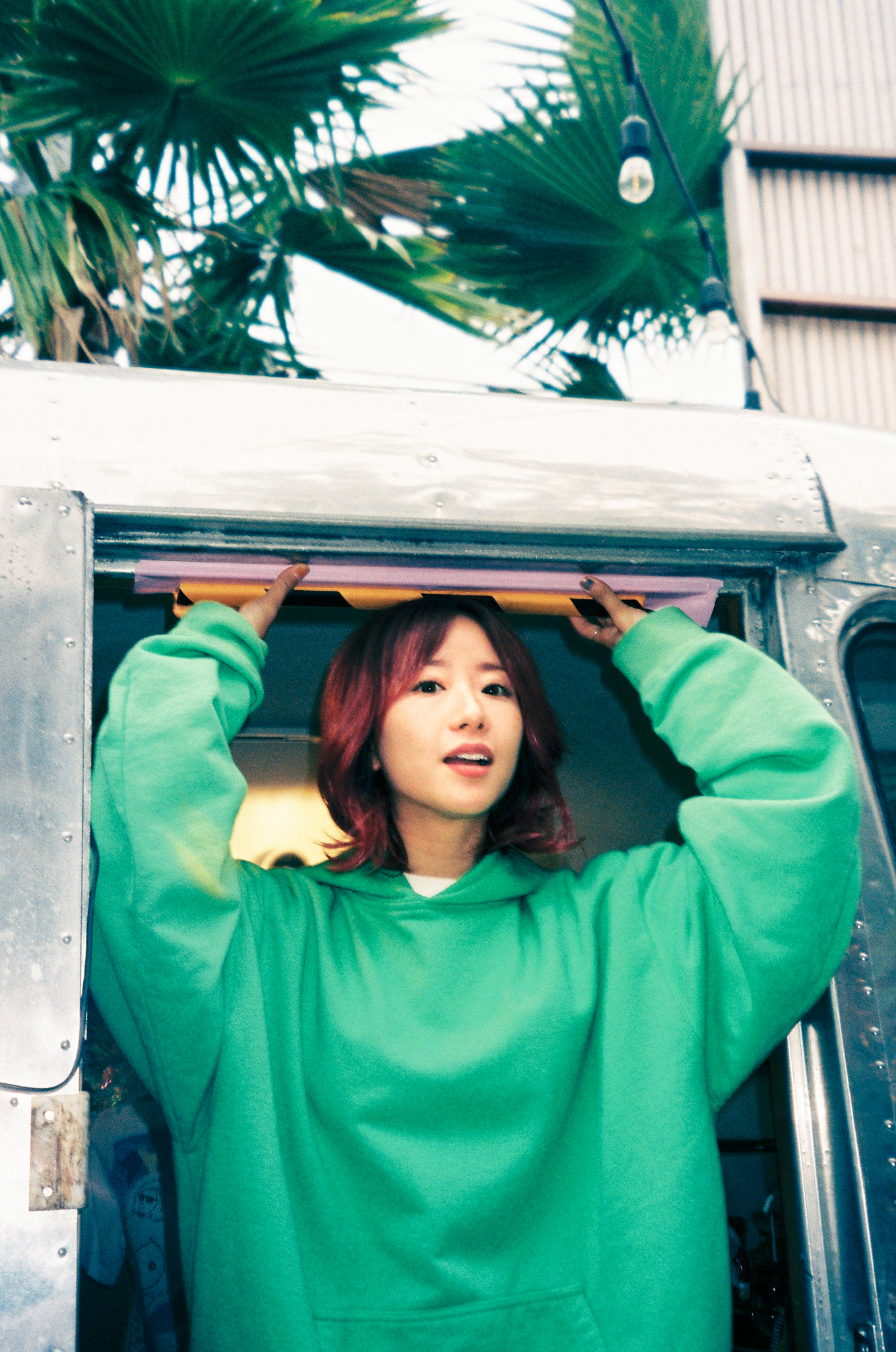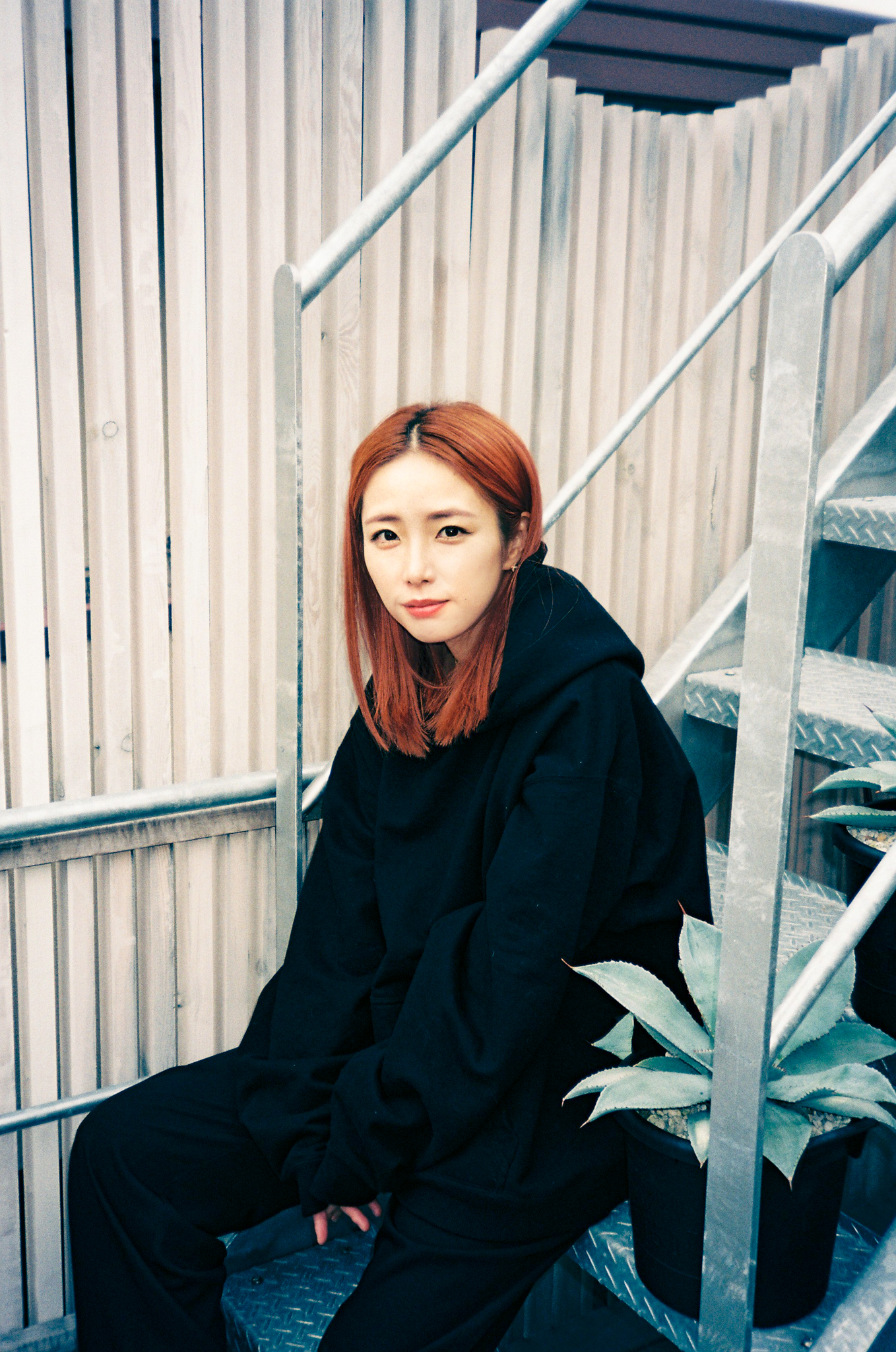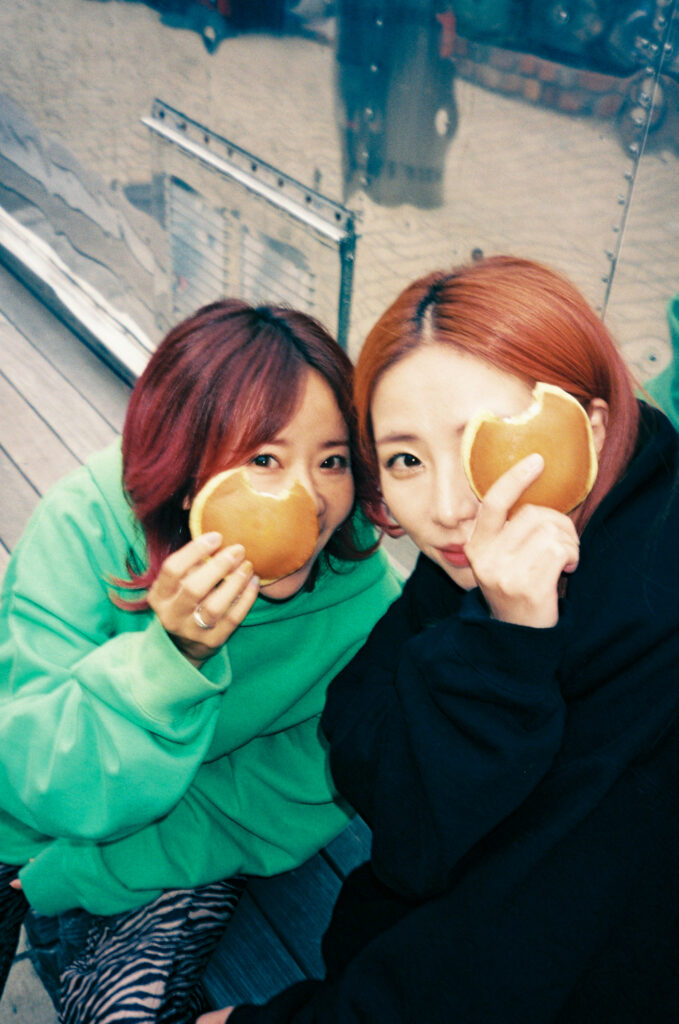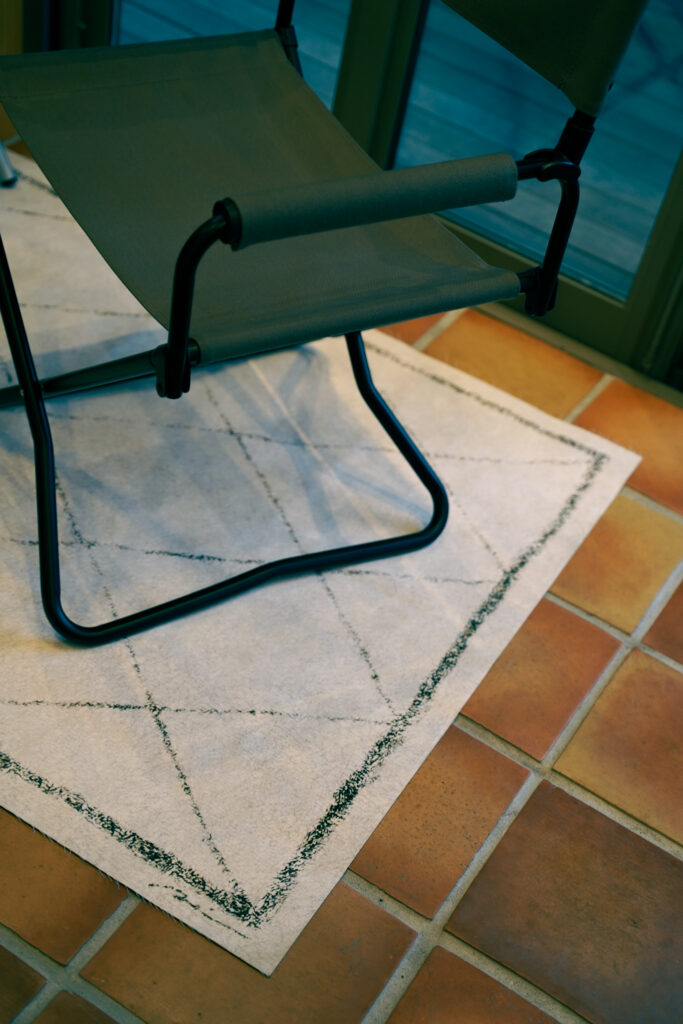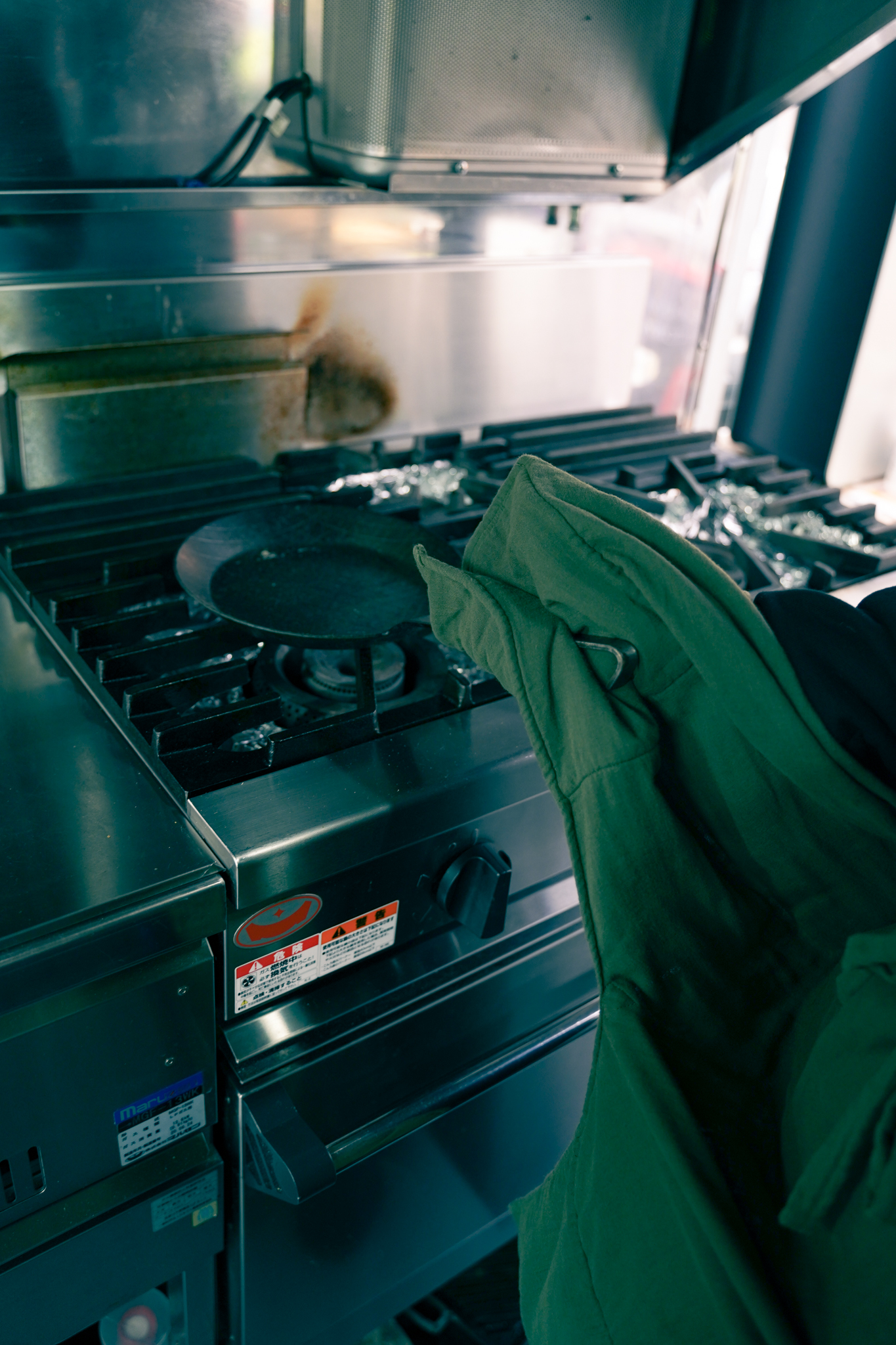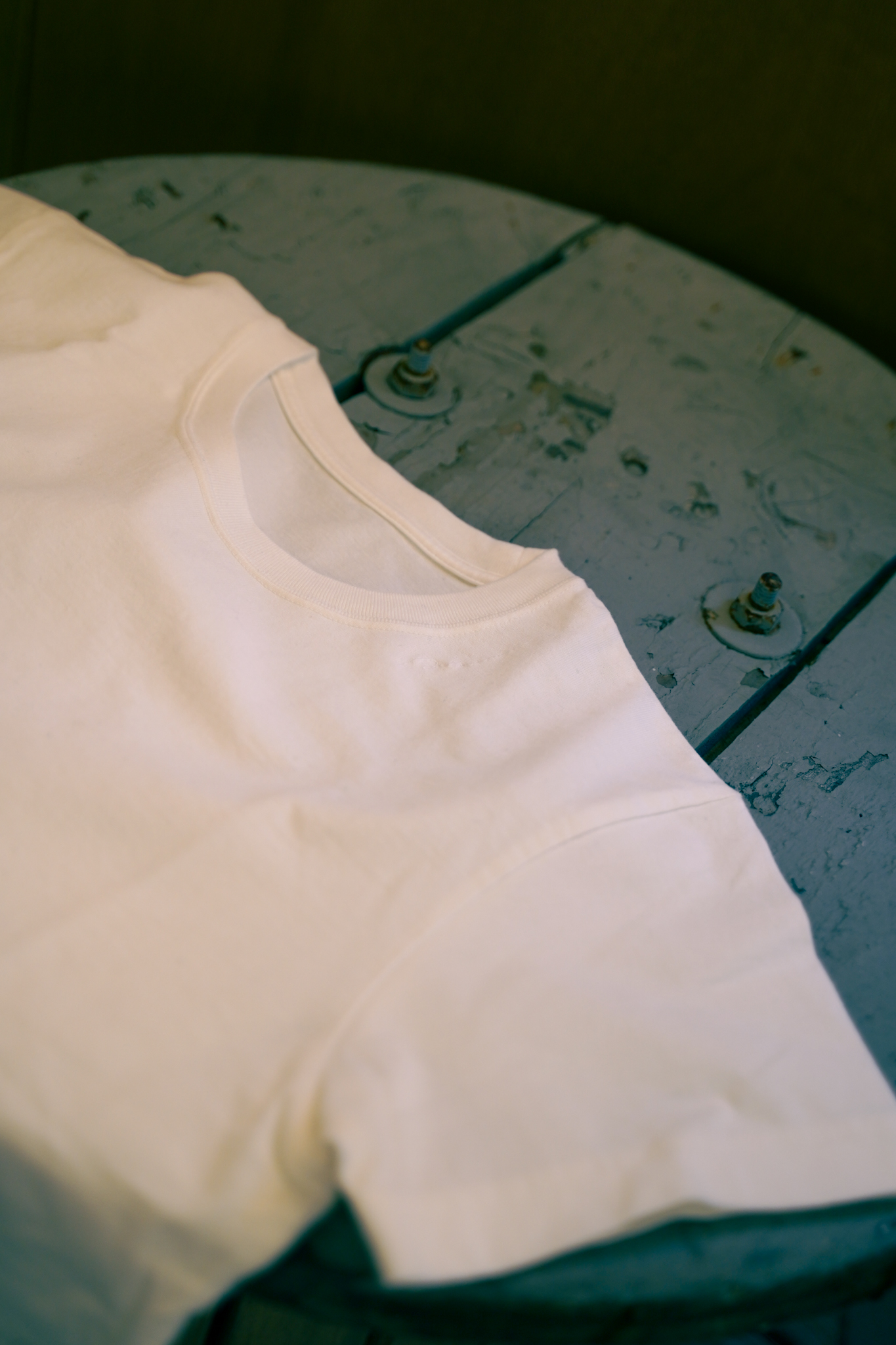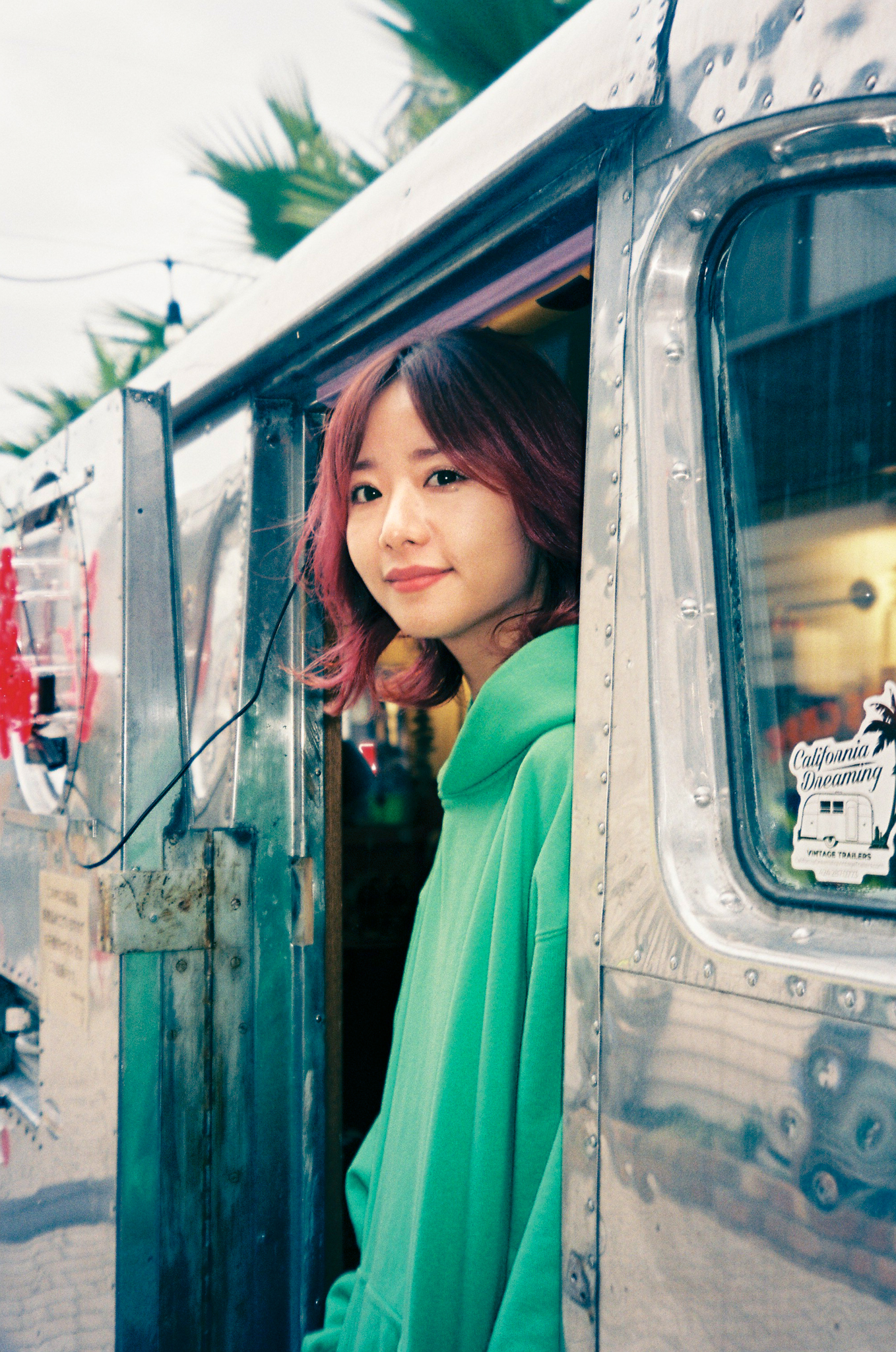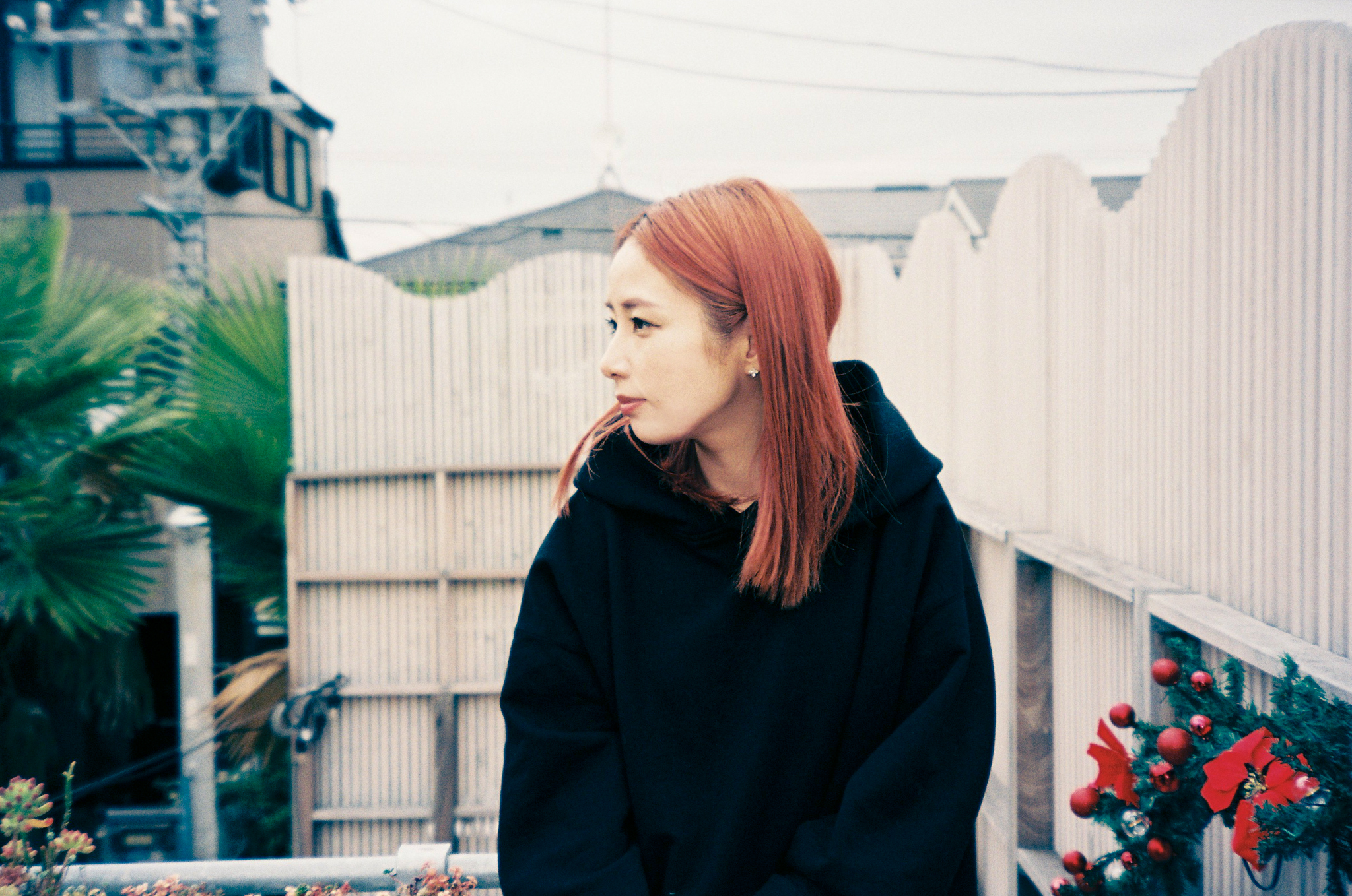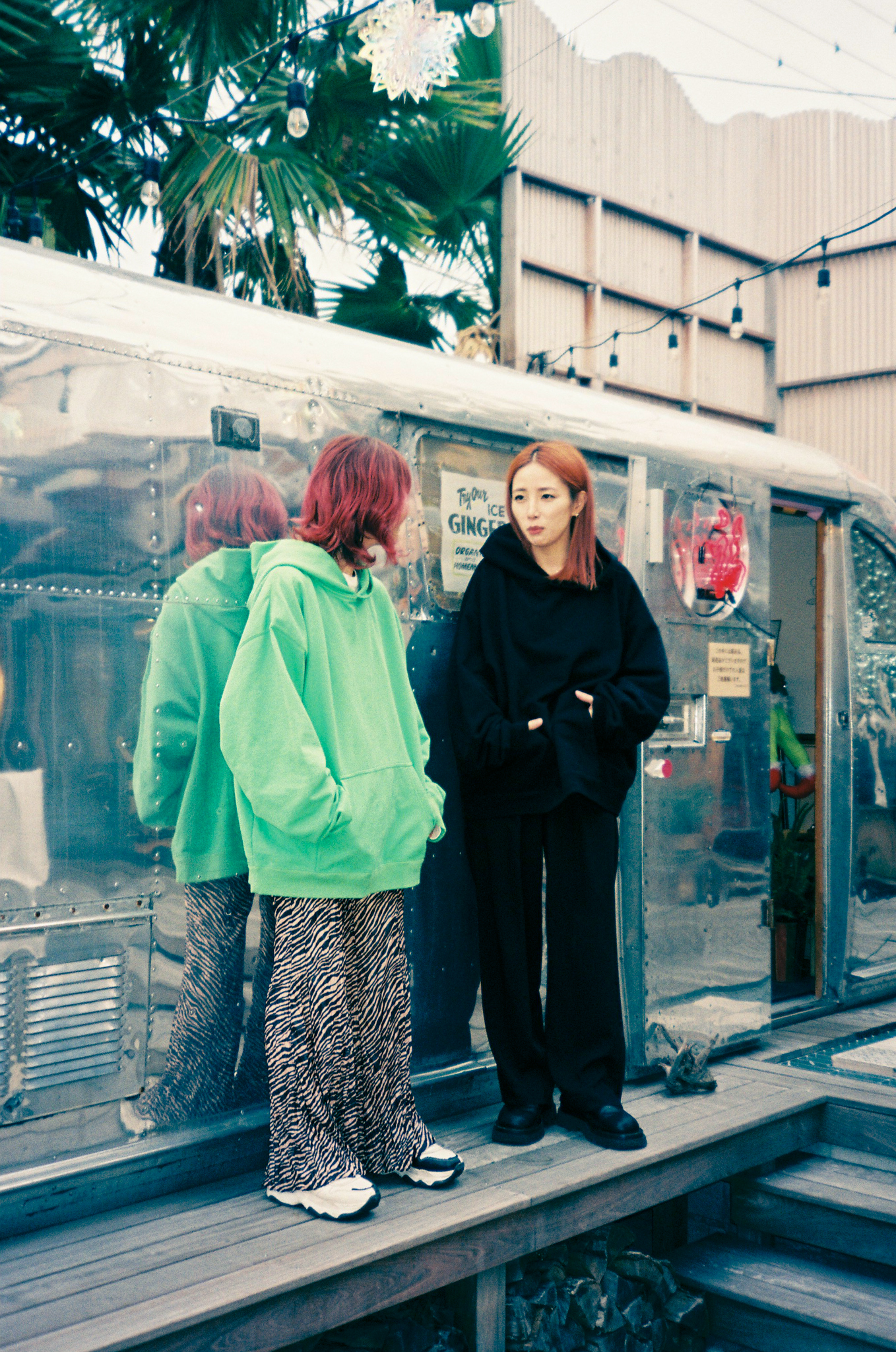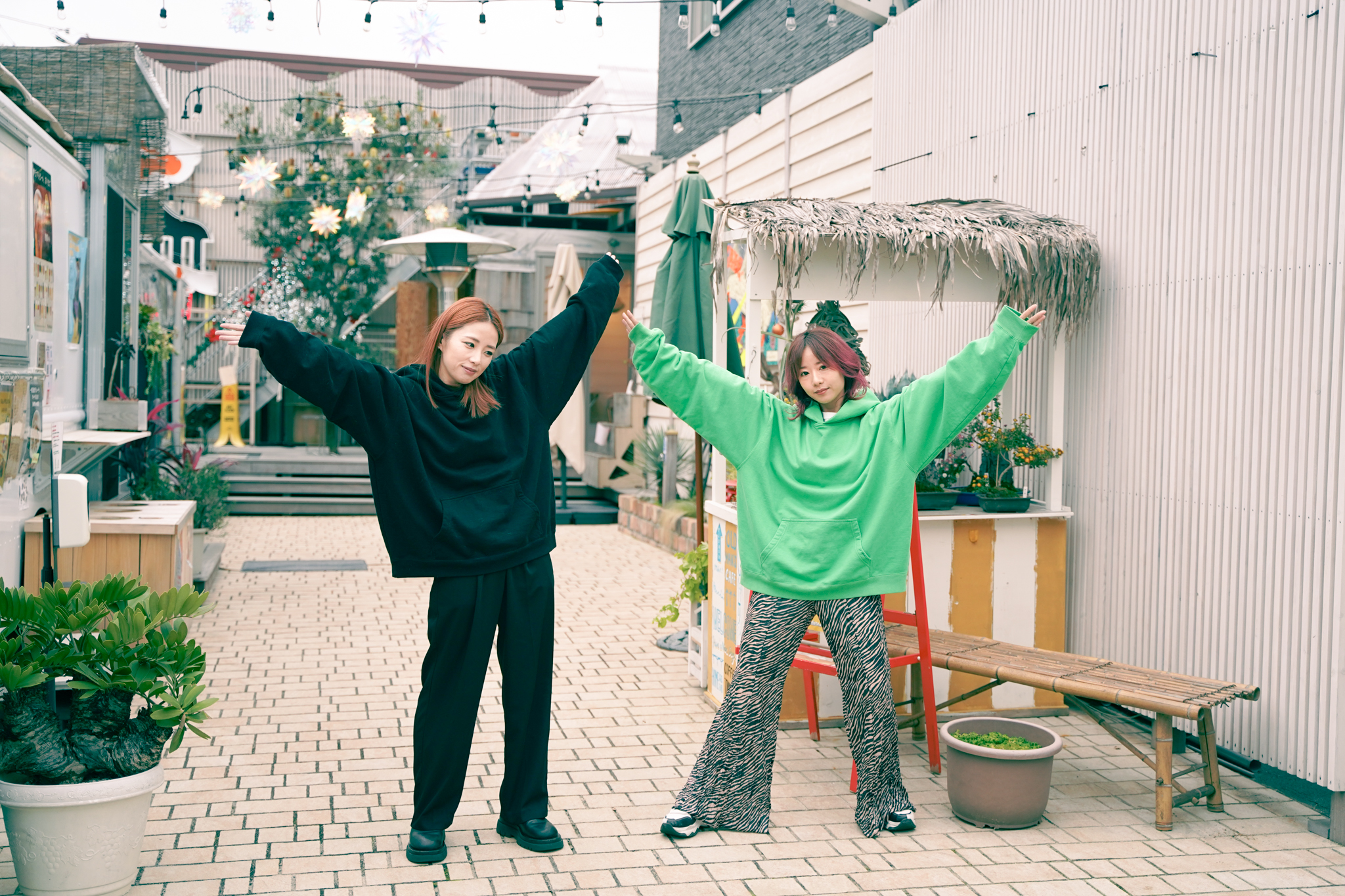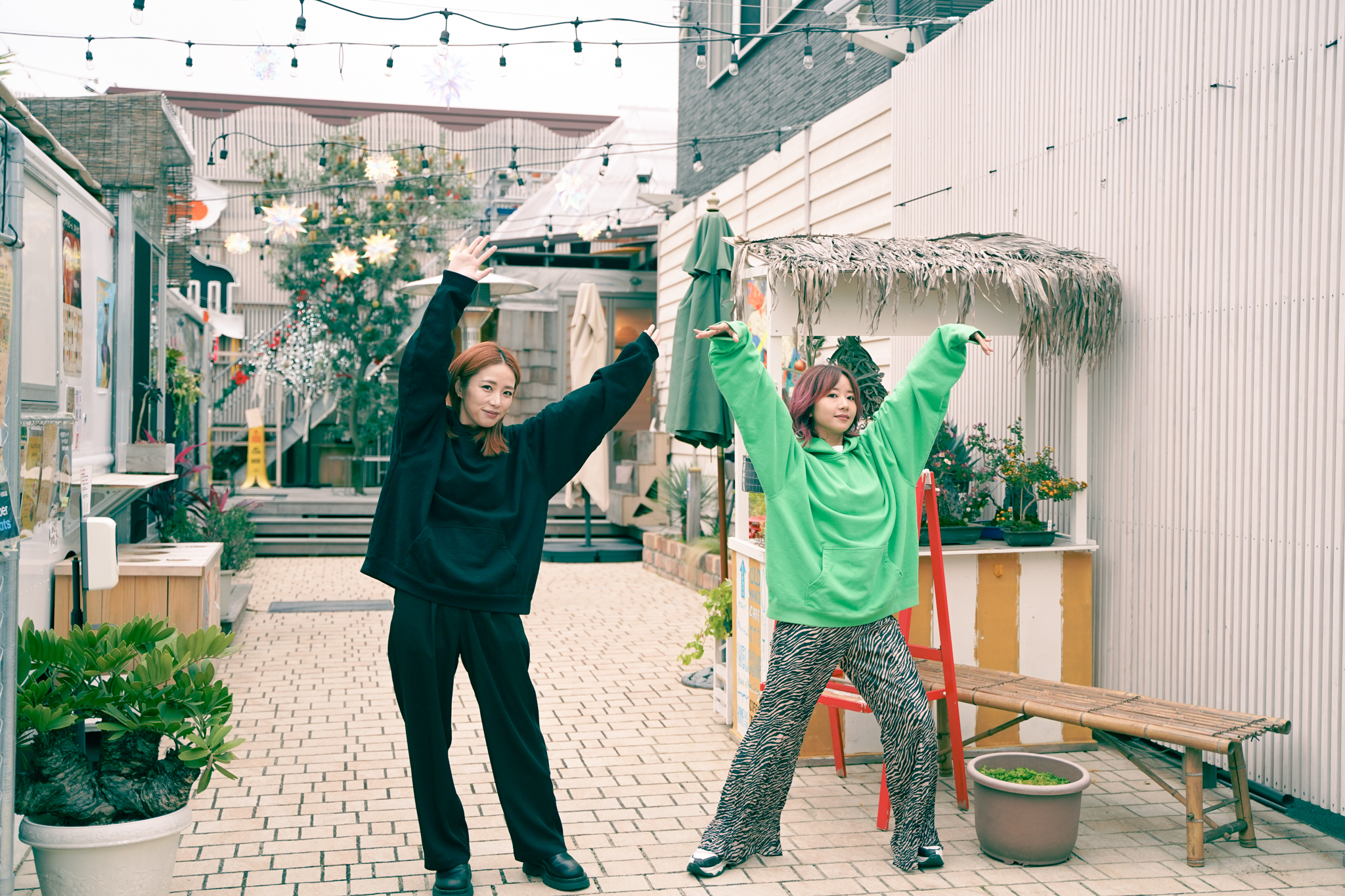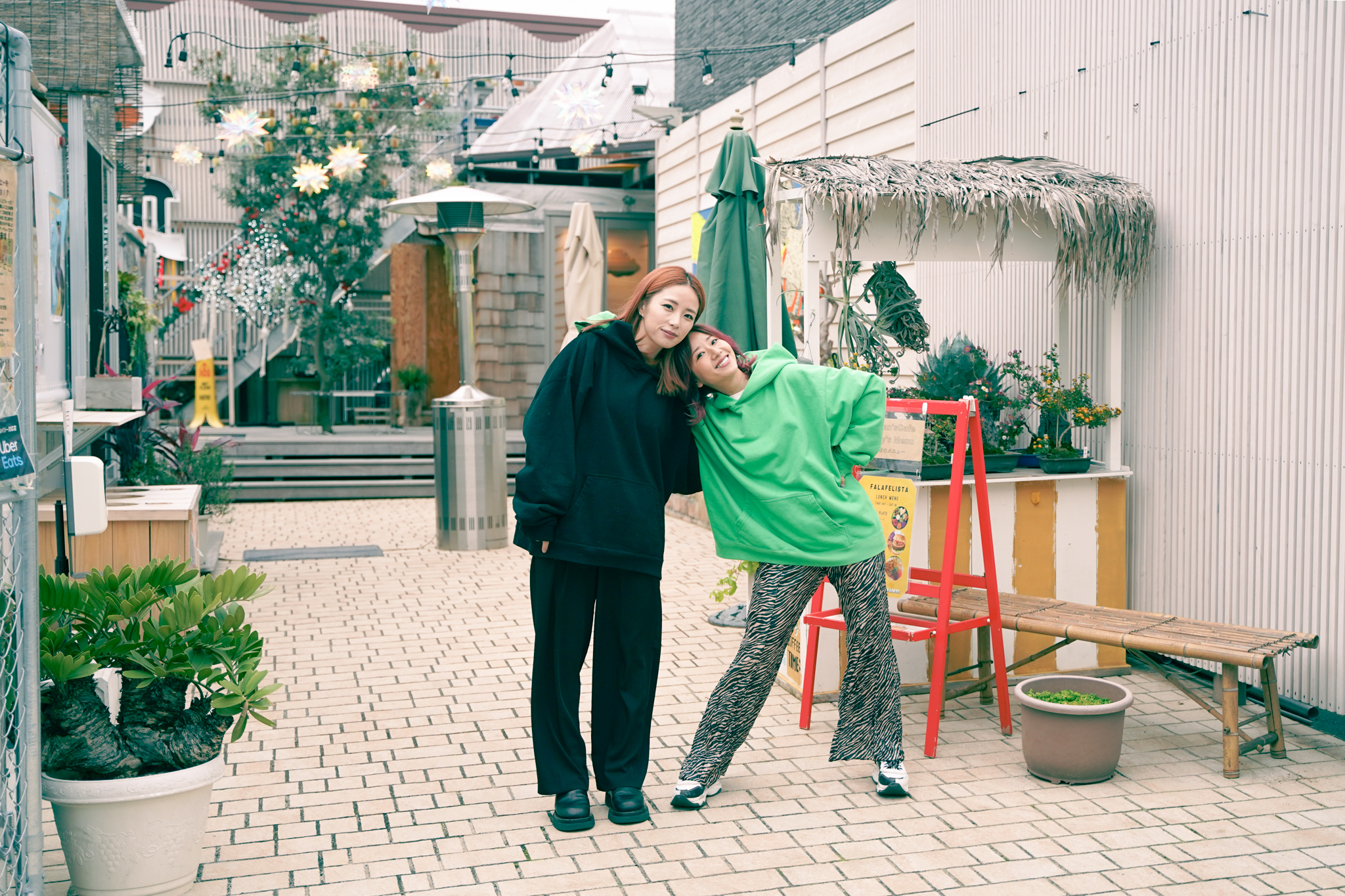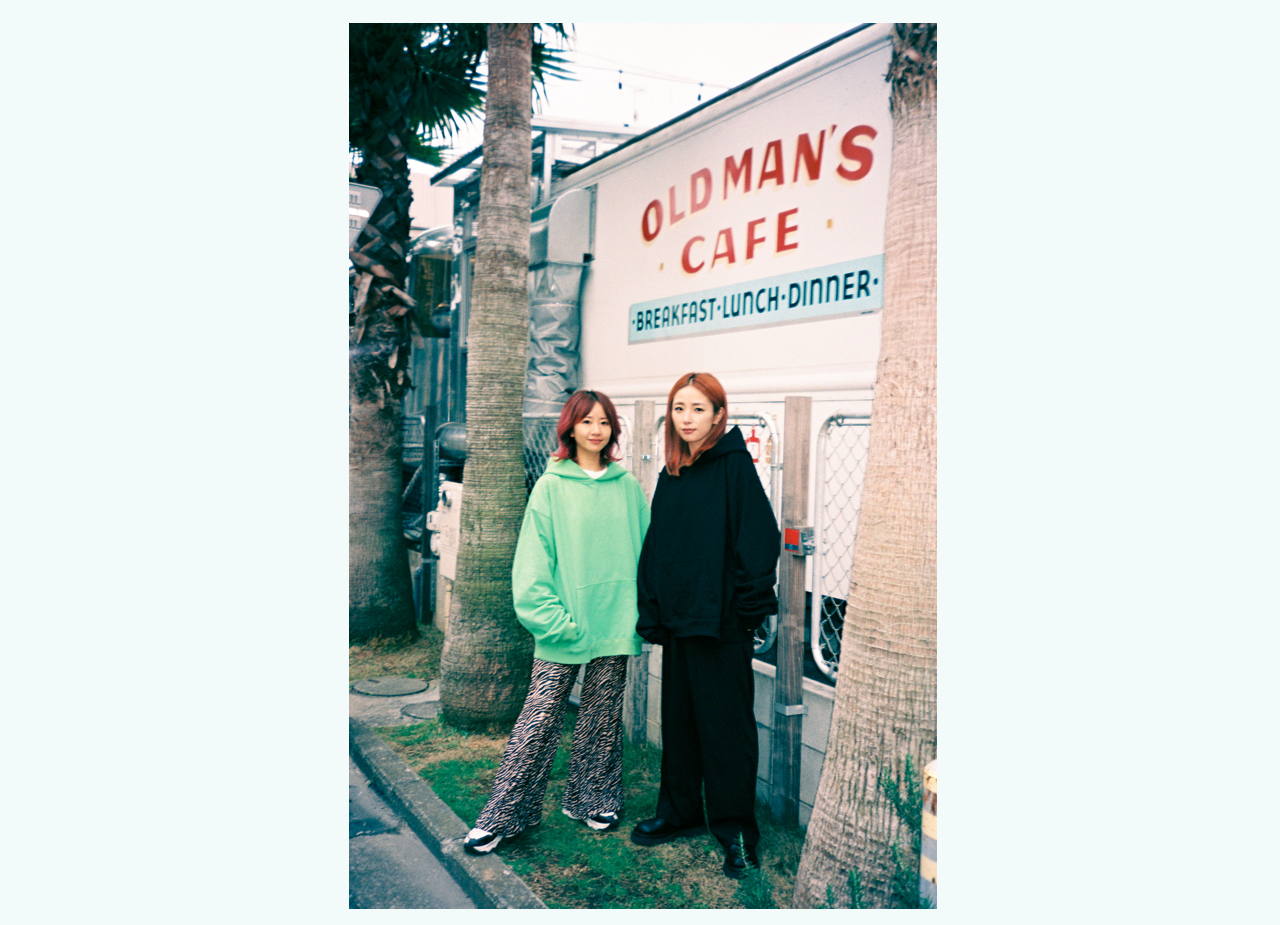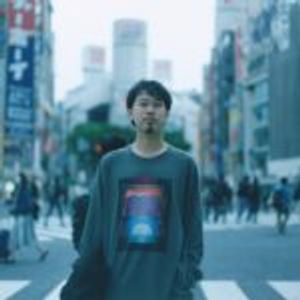Established by ex-E-girls member and now photographer Dream Aya and her ally Arisa, asebi is a lifestyle brand producing the things the founders “truly want to own.” The brand is garnering attention with its wide variety of items such as 100% plant-dyed sustainable clothes and syrup made from leftover citrus fruits that didn’t meet the standards.
It is surprising how the duo not only plans ideas for the brand, but also does everything on their own from shooting pictures of the products, making the website, packing and shipping out packages, and otherwise. So why did they decide to start a lifestyle brand? What is the importance of doing everything on their own? And finally, what are the things they “truly want to own?” We sat down with the girls to learn about how they started asebi to their sentiments embedded in the brand.
Creating as we pursue “What’s genuinely important in our livings?”
――Aya, it’s been a couple of years since you left the entertainment industry. What are the things you are working on these days?
Dream Aya (Hereinafter Aya): I work mainly as a photographer, so doing shoots is my core job, but I’m also involved in creative works like drawing illustrations. In addition, I work at a camera store in Jiyugaoka called Popeye Camera.
――And how about you, Arisa? What do you do for your living?
Arisa: I’m a freelance and work for many different apparel companies and brands as a publicist, marketer, promotion adviser, and social media consultant, and I support them in many different ways. I operate asebi with the knowledge and experience I’ve gleaned through these jobs.
――Can you tell me the trajectory from how you two first met to founding asebi?
Aya: I got sick right when I had decided to leave the entertainment industry. So then, I started going to the enzyme bath on a reg, and there I met Arisa who was running the place. We hit it off really fast as we were the same age. After then, we started hanging out personally, and soon after, I quit the entertainment industry. Back then, I remember saying to Arisa, “I haven’t got any breaks when I was in the business, so I’ve never had a chance to go on a trip with my friends. So, I can’t wait to visit different places after I quit. It’s my dream to travel.” Then, Arisa said to me, “Let’s travel together!”
Arisa: It’s important to share the same vibe with the person you’re traveling with and vibe with the place you’re traveling to. If you don’t get along, then it would only be exhausting…. But with Aya, we share common interests, and the places we wanted to go or the things we wanted to eat were exactly the same, so I knew that it would be fun to go on a trip with her.
Aya: And while we were on a trip together, we were sharing our ideas like, “Wouldn’t it be nice if we had something like this on a trip?” “It would be convenient if we had a travel kit like this.” And then we were like, “Why not just make them ourselves.” So that was the origin of asebi.
――I see, so it started when you were traveling together. Now, we’d like to hear about the brand—First, what’s the theme of this brand?
Aya: It’s a lifestyle brand we founded together in November 2020. The name asebi is a Japanese name of a flower (“Japanese a” in English) that conveys the message, “Let’s travel together.” While making our products, we imagine our customers receiving our products and taking them along for trips.
――The first item you released was Palo Santo wood sticks (fragrant wood that is used by burning to “purify” room or space or “refresh emotions”), right? I remember seeing it on your socials.
Aya: That’s right. We both love using Palo Santo wood, and we use it especially when we do yoga, but we were saying that they are never presented in a cute way.
Arisa: We wanted it not just for burning, but to look cute and be an interior décor, so we dressed it up with dry flowers and sold it as a set with a lucky bracelet made with Malulani Hawaii power stones. We ended up selling really well that had to produce more.
――So, the first product of the brand you started from scratch sold really well that you had to put more on production—That’s amazing. What else did you make so far?
Aya: The next thing we made was a made-in-Japan sustainable T-shirt made from Texloop—a blend of recycled cotton (leftover cotton from sewing factory) and organic cotton. It is dyed with 100% plant dyes, and it’s now become the brand’s regularly-sold item, and we’ve also made the same long-sleeve T-shirt and hoodie. Also, we’ve produced a wide variety of products like, an apron with a quilted pocket on the inner hem that turns easily into an oven mitt; a washable Glamping mat that is easy to carry around; ginger syrup made from wasted citrus fruits that couldn’t be shipped to grocery stores as they didn’t meet the standards; and soy whipped cream sandwich made for people who don’t eat dairy whipped cream.
――So from apparel to food and beverages—That’s certainly a wide variety of items. I especially thought it’s interesting that the plant-dyed clothes have become your regularly-sold item since there aren’t that many places that can do 100% plant-based dyes, right?
Arisa: That’s correct. Usually, plant-dyed products contain 5% – 10% chemical dyes to prevent color bleeding. So, at the moment, there are only a few brands that use 100% plant dyes, which is also, by the way, a traditional Japanese dyeing method. We want to preserve this tradition. Also, with 100% plant dyes, you can enjoy how unique the color bleeds—we would love for people to try it.
――I see, so every product is brimming with your creative ideas. What are the important things when making the products?
Aya: We try to create things that “we truly want or want to use” in our daily lives. And something long-lasting. Looking back on the passing year, we’ve been making things that are essential in our daily lives. The T-shirt and hoodie for sure, and we use the apron and Glamping floor mat on a reg.
Arisa: That’s right. On the premise, they need to be things we genuinely want to use, and we always think through carefully like, “Do we really need this in our daily lives?” So we only make the products that we unanimously agree to make. In other words, the products aren’t released if one of us isn’t satisfied.
Aya: That’s true. We have infinite product ideas, but that doesn’t mean we can release them all. With asebi, both of our feelings are deferred.
We hope people can feel kindness towards earth and humans and abundance through asebi
――asebi products are gender-free, including the sustainable shirts, pajamas, and pants. Is this intended?
Aya: We say we shouldn’t specify whether the products are for men or women, but we’re also not trying to make products that are explicitly gender-free.
Arisa: We’re not an apparel brand, and we have that as a premise, so we make sure we produce things that a wide variety of people would want to own. So the products we make are naturally gender-less and made in sizes and shapes that anyone can wear. It all come about organically through our discussions.
Aya: That’s well said. When I’m with Arisa, we mostly talk about gender, the environment, and eating habits. Since I met Arisa, I’ve started thinking more about the issues surrounding those things on a daily basis. So that’s probably why sustainability and gender-free are incorporated naturally in the asebi products.
――Arisa, when did you become aware of these issues?
Arisa: It was when I was running my own enzyme bath business. The experience there was a turning point in my life. Most of the customers who came in were struggling with sickness or desperate to improve their body conditions. Enzyme bath is one of the effective ways to warm your body, enhance metabolism, and help improve your body condition. But back then, even though I was running the business, I didn’t have adequate knowledge to be attentive enough to these people with different kinds of problems and struggles they were going through with their bodies. I realized so through having conversations with my customers. So that’s when I thought I should be more aware of the things I consume and wear, or else I would never understand my customers nor have a reason for running the store. Since then, I started studying human bodies, and I eventually acquired an Ayurveda (a traditional medical system of approximately 5,000 years of history that started in India/Sri Lanka) certification. Today, Ayurveda is part of my lifestyle.
Aya: I thought it would be exciting, and I would be able to learn a lot if I started a lifestyle brand with Arisa. That’s one of the reasons I started asebi with her. She’s so knowledgeable and keeps me enthralled with incredible ideas.
Arisa: You can be kind to the earth and your skin by simply wearing the T-shirt from asebi, and reduce food waste by using the syrup from asebi. It may seem like a small thing, but we hope our products encourage people to be more conscious about the things we care about.
――What kind of items are you planning on releasing in the near future? We can’t wait to see more new asebi products full of your genius ideas.
Arisa: As we’re not an apparel brand, we want to make commodities made from unique materials. We want to make things that we use in our daily lives and are essential in our lives, but also something that isn’t made from plastics or chemical substances. It may seem subtle, but we want to continue making things that are good for our planet.
Aya: Not just something we consume for our inner care, but we also want to make things that are kind to the skin or focused on the outer body. Clothings and accessories made from synthetic fibers are intended to keep you warm but could cause damage to your skin. My skin got irritated and itchy, too, from those fabrics. So we want to make something people with sensitive skin or allergies can wear without trouble. We are not only gender-free, but we want to think big and be considerate of the people struggling with their bodies.
Arisa: And last but not least, I want to make travel kits.
Aya: Ditto. Next year, we’ll make travels kits good for our skin and planet.
――Have you made travel kits before?
Aya: Since we founded the brand during the coronavirus pandemic, no one was really able to travel. So, we’ve mainly made home goods. As we are a lifestyle brand, we’ve been absolutely content producing many unique home products, but our brand also comes from traveling, so it was a tough year not being able to travel anywhere.
Arisa: We get to input the most from traveling, and our output is asebi, so the fact we couldn’t travel affected us a lot. I think we didn’t have any travel kit ideas because we weren’t traveling.
――Looking through the photos on your socials of your trips, I’m sure the consumers are thrilled to see those trips have been the inspiration for the products. Finally, what is your goal for 2022?
Aya: After running the brand for a year, I would say I want to keep creating good things but more in a peaceful way. In 2021, we’ve been releasing something new every month and felt like time was rushing by us.
Arisa: I agree. In the passing year, we were able to see that there are many people who are genuinely wanting the things we genuinely wish to have and create. There are so many people who see the value in asebi. So for 2022, we’d like to stay true to our craftsmanship and take our time to do the things we are destined to do.
Aya: The brand just turned two years old, so our current goal is to create every product with passion and for the brand to be loved even more.
L→R
Dream Aya
After leaving the music business in July 2017, she started her career as a creator with her innate talent for photography, illustration, and art. In January 2020, she became an independent photographer. Currently, she does a lot of shoots for works such as apparel brand visuals and artists’ cover arts; she also does creative directions and provides illustrations for various corporates and brands
Instagram:@aya_dream04
Arisa
After working as a shop clerk at the vintage store KINSELLA, she started her own enzyme bath salon in Nakameguro called Reborn. While running the business, she acquired an Ayurveda (a traditional medical system of approximately 5,000 years of history that started in India/Sri Lanka) certification. After her enzyme bath business, she traveled autonomously to Morocco and Europe, bought goods, and sold them on her own online store panese. She is currently a freelance working mainly for Chinatsu Wakatsuki’s brand WC, but also does press, marketing, promotions, social media consultation and support for various other apparel brands.
Instagram:@_i.arisa_
asebi
A lifestyle brand founded in 2020 by Dream Aya and Arisa. The brand name comes from the Japanese of the flower, Japanese andromeda, which is said to convey a message, “Let’s travel together.” The duo christened the name, hoping to deliver items spawned from their “fun life” to the people who genuinely wish to live a fulfilling life. asebi proposes items that will accompany your “life journey.”
Instagram:@asebi___
Photography Sumire Ozawa

